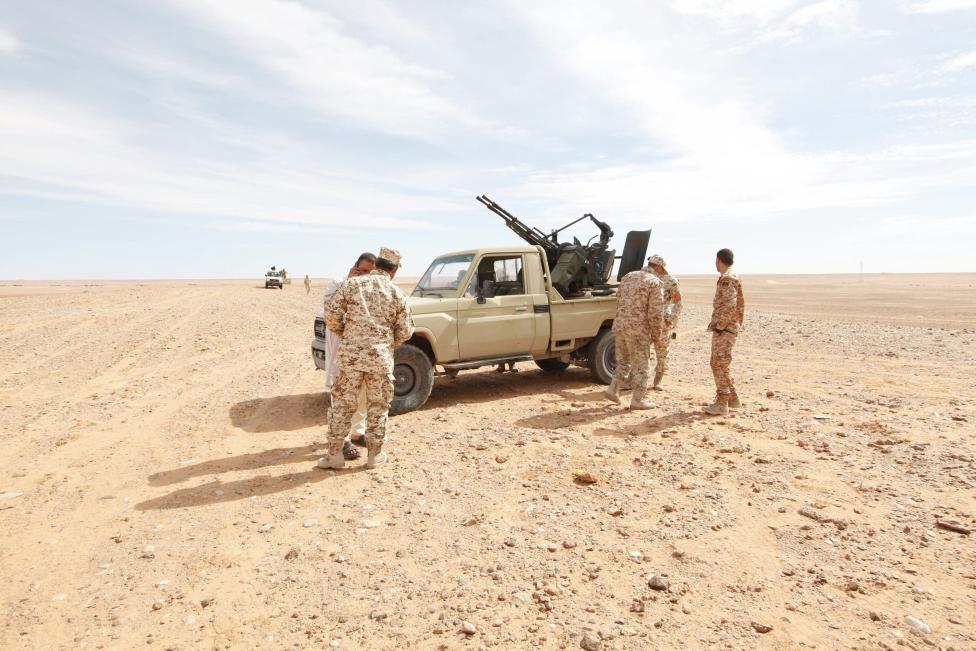The United Nations special envoy to Libya, Martin Kobler, stressed on Tuesday the country’s need for uniting the various military and militia strands in order to defeat the terrorist ISIS organization.
A December unity deal was meant to end the rift between opposing governments in the capital Tripoli and the east that have been fighting over the country since 2014. The competing factions helped oust Muammar Gaddafi five years ago.
But in a sign of a possible new showdown, eastern and western factions have sent separate armored columns towards Gaddafi’s home town Sirte, now in the hands of militants from ISIS.
Speaking alongside side French Foreign Minister Jean-Marc Ayrault, Kobler said a united command structure was needed under control of Fayaz Seraj, the head of the U.N.-backed Government of National Accord (GNA), which arrived in Tripoli in late March and is still trying to establish its authority.
“One point must be very clear. The fight against Daesh must first be a Libyan fight and a united fight,” Kobler, said referring to the Arabic acronym for ISIS.
“Nobody acting alone will succeed that’s why it’s important that all security actors in the west and east unite their forces. There must be a joint command structure and joint army under the general command of the council (GNA).”
Ayrault, whose country has sent special forces to help certain groups combat ISIS in the North African state, said the priority was to incorporate General Khalifa Haftar, who heads up troops in the east, with militias in the west.
Haftar on May 20 said it would be “unthinkable” for eastern Libyan forces to join the GNA until militias aligned to it had been disbanded.
“I encourage the government (GNA) to do everything to have contacts with the east and they are doing it,” said Kobler, who added he would like to hold talks with Haftar. “But the east is refusing for the moment. It takes two to tango.”
